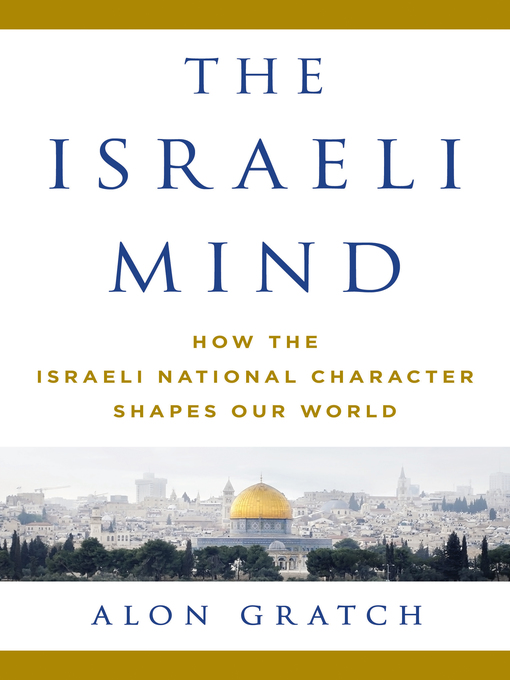Israelis are bold and visionary, passionate and generous. But they can also be grandiose and self-absorbed. Emerging from the depths of Jewish history and the drama of the Zionist rebellion against it, they have a deeply conflicted identity. They are willing to sacrifice themselves for the collective, but also to sacrifice that very collective for a higher, and likely unattainable, ideal. Resolving these internal conflicts and coming to terms with the trauma of the Holocaust are imperative to Israel's survival as a nation and to the stability of the world.
Alon Gratch, a clinical psychologist whose family has lived in Israel for generations, is uniquely positioned to confront these issues. Like the Israeli psyche that Gratch details, The Israeli Mind is both intimate and universal. Intelligent and forthright, compassionate but sometimes maddening, it is an utterly compelling read. Drawing on a broad cultural and historical canvas, and weaving in the author's personal and professional experience, The Israeli Mind presents a provocative, first-hand portrait of the Israeli national character.
- Available now
- New eBook additions
- Most popular
- New kids additions
- Try something different
- Lucky Day
- See all ebooks collections
- New audiobook additions
- Available now
- Most popular
- Try something different
- Listen While You Workout
- Lucky Day
- See all audiobooks collections


